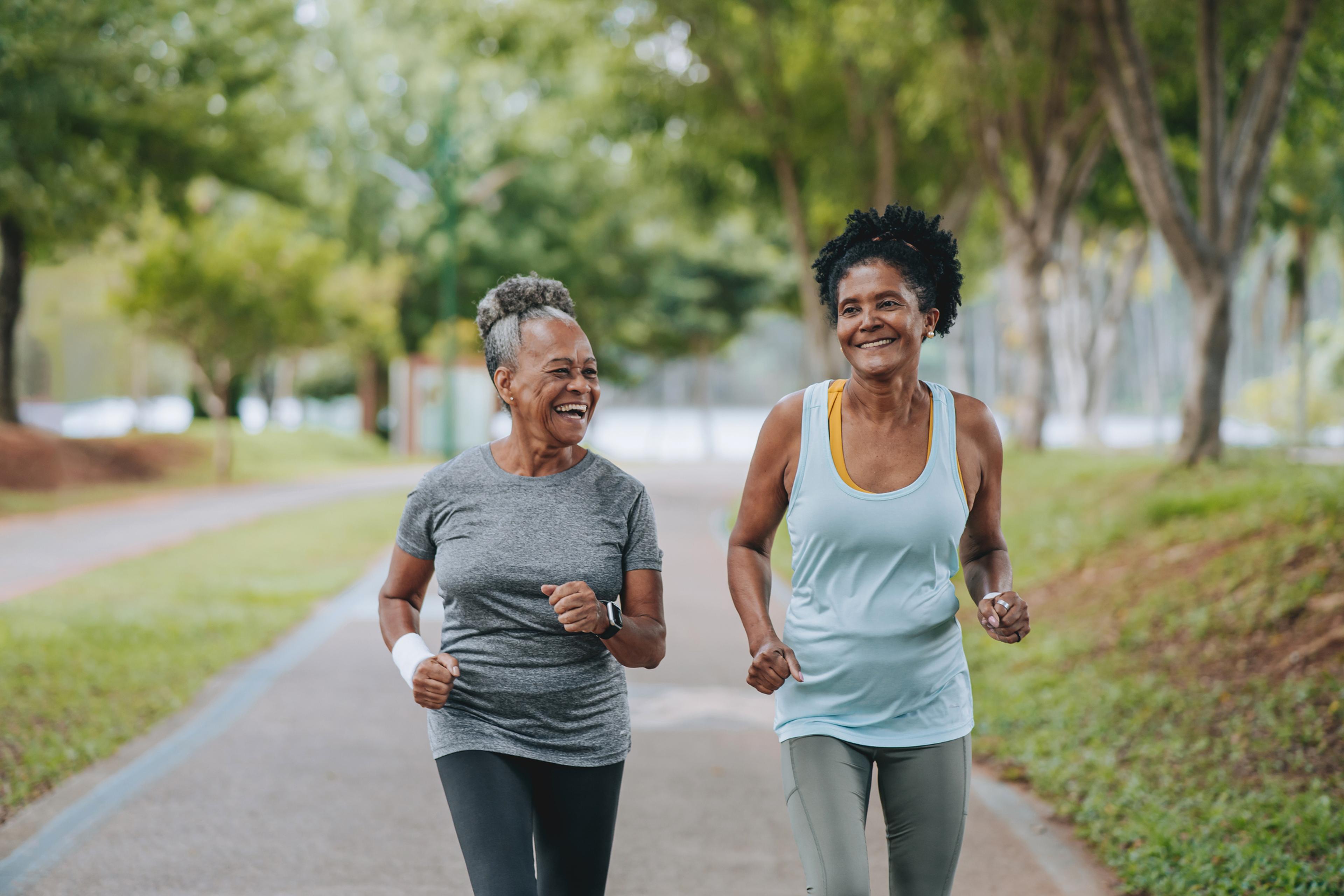5 Things I’d Do as a Woman to Promote Healthy Aging

Blue Daily
| 4 min read

It becomes increasingly important to live a healthy lifestyle as we age. Older adults are prone to various physical and mental conditions, such as chronic diseases, infections, falls, loneliness and social isolation. Additionally, certain medical conditions are more commonly present in older women compared to men.
Research published in the Journal of the American Geriatrics Society states women aged 45 or older have a significantly higher lifetime risk of developing dementia compared to their male counterparts, largely because women have a longer life expectancy. The 2021 study also states older women are 4.2 times more likely to be diagnosed with osteoporosis and are also more susceptible to fall-related injuries.
Ahead of National Women’s Health and Fitness Day, here’s a list of five things Dr. Namita Yende recommends women start practicing today to ensure a happy, healthy future.
1. Eat a healthy, well-balanced diet: With age comes a loss in muscle mass. Since more of the body’s weight is composed of fat than muscle, it becomes harder to burn calories for older adults. Approximately eight million women also experience osteoporosis decreased bone density, according to the National Council on Aging (NCOA).
For these reasons and more, it’s important to eat a healthy diet consisting of five portions of fruits and vegetables today, legumes and nuts, whole grains and lean meats such as chicken and fish. Avoid processed foods and beverages with added sugar and pay attention to sodium intake. Read labels carefully at the grocery store and aim for less than 100% daily value– which is less than 2,300 milligrams – of sodium each day. Selecting low sodium or snacks without added salt helps, too.
2. Get active: Regular physical activity can help women stay fit and strong. According to the Office on Women’s Health, physical activity helps older women stay independent longer, prevents muscle and bone loss, reduces the risk of falling and breaking bones and can help prevent or delay conditions like diabetes and heart disease.
Any physical activity is better than no physical activity, so move more and sit less. Walking, focusing on endurance-focused activities, and incorporating upper and lower body strengthening exercises are recommended to improve balance and flexibility. You don't have to go to a gym to exercise. Talk to your primary care provider (PCP) about safe ways that you can be active and read the current Physical Activity Guidelines for Americans provided by the U.S. Department of Health and Human Services.
3. Get screened: Regular health screenings can help you recognize potential health problems before they become serious. One in eight women in the U.S. will be diagnosed with breast cancer in their lifetime. Mammograms are the best way to screen for breast cancer, especially during early stages. For those with average risk, a baseline screening mammogram is recommended, typically around age 40. Most continue with yearly mammograms until age 50, and then continue to screen every other year. Routine pap smears are also a must to help detect cervical cancer, which may not have any signs or symptoms. It is recommended women ages 21 to 65 get routine tests every three years or so.
It’s important to note that screening for colon cancer is just as important for women as it is for men. Those who are at average risk for colorectal cancer should start regular screening at age 45. Healthy people without risk factors should consult with their PCP and plan to have a screening colonoscopy every 10 years through age 75.
Additionally, here’s a list of other screenings women should get by age, provided by the Office on Women’s Health.
4. Focus on mental health: Taking care of your mental health is just as important as managing your blood pressure. Certain social and economic factors can put women at greater risk of poor mental health than men, according to the Mental Health Foundation. There are also disorders unique to women, per the National Institute of Mental Health, like during the menopause transition (perimenopausal depression).
Eating well, staying active, talking openly about your feelings with loved ones can help, but may not be enough for some women. Don’t ignore prolonged symptoms of anxiety and depression. These conditions are common and treatable – and help is available. PCPs are a good starting point to discuss any behavioral health questions or concerns, such as depression or anxiety. They either connect you with an in-house behavioral health provider in their practice or refer you to another professional.
5. Avoid common medication mistakes: When medicines are not used correctly, they can cause serious, preventable health problems. The U.S. Food and Drug Administration (FDA) recommends asking your PCP and pharmacist thorough questions, keeping a medicine list, following directions carefully and safely storing and throwing out old medicines. Additionally, here is a list of five crucial food and medication combinations to avoid.
Dr. Namita Yende, MD MMM, is a senior medical director & associate CMO with Blue Cross Blue Shield of Michigan. For more health tips and information visit MIBlueDaily.com.
Related reading:
- Women’s Health: The Doctors and Specialists Who Keep You Healthy
- ‘You Don’t Have to Suffer Silently:’ Examining Women’s Health Disparities and the Importance of Self-Advocacy
- The Benefits of Breastfeeding for Mothers
Photo credit: Getty Images





